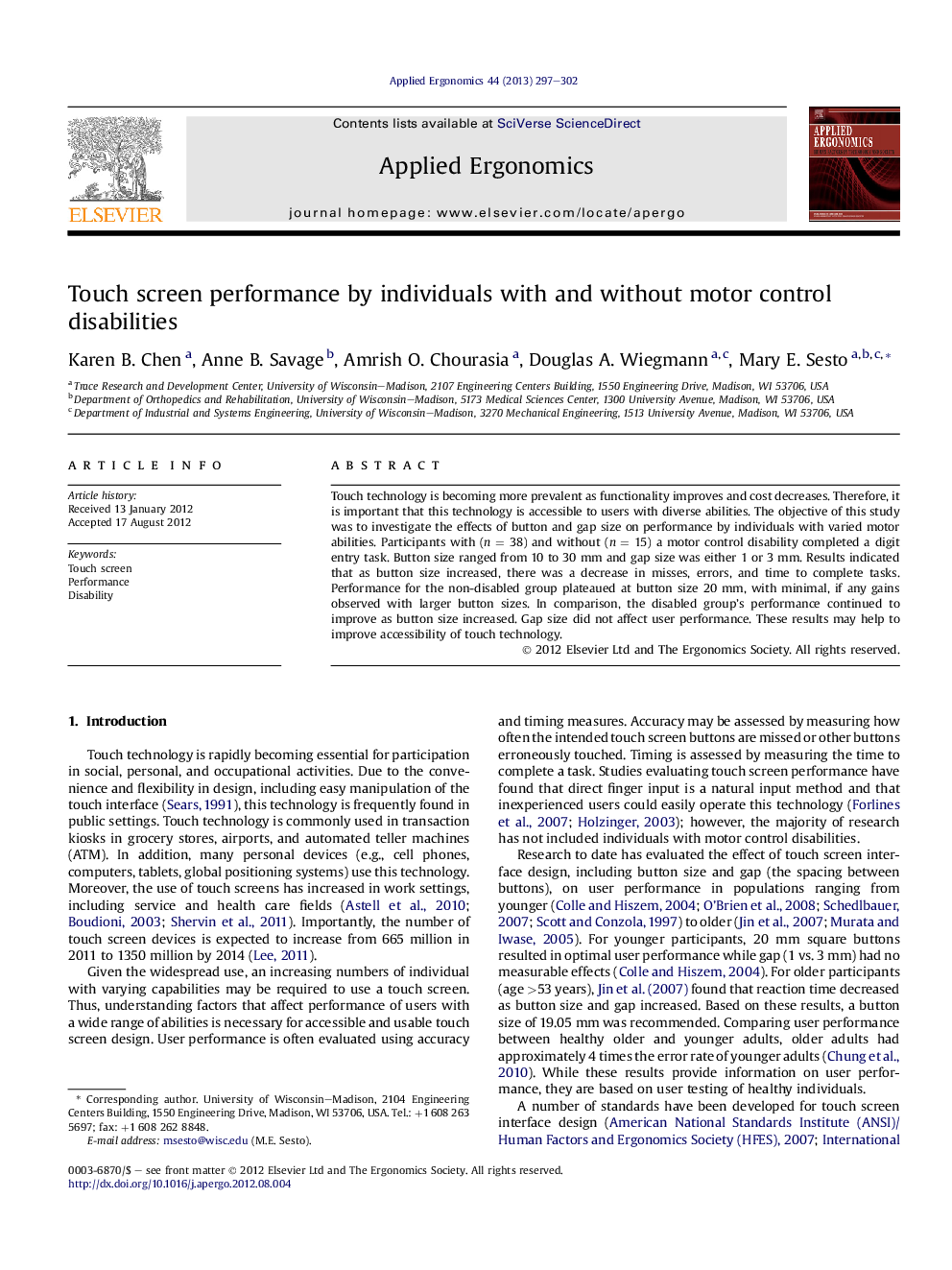| کد مقاله | کد نشریه | سال انتشار | مقاله انگلیسی | نسخه تمام متن |
|---|---|---|---|---|
| 548725 | 872262 | 2013 | 6 صفحه PDF | دانلود رایگان |

Touch technology is becoming more prevalent as functionality improves and cost decreases. Therefore, it is important that this technology is accessible to users with diverse abilities. The objective of this study was to investigate the effects of button and gap size on performance by individuals with varied motor abilities. Participants with (n = 38) and without (n = 15) a motor control disability completed a digit entry task. Button size ranged from 10 to 30 mm and gap size was either 1 or 3 mm. Results indicated that as button size increased, there was a decrease in misses, errors, and time to complete tasks. Performance for the non-disabled group plateaued at button size 20 mm, with minimal, if any gains observed with larger button sizes. In comparison, the disabled group's performance continued to improve as button size increased. Gap size did not affect user performance. These results may help to improve accessibility of touch technology.
► Misses and errors decrease as button size increases.
► Gap size did not have a significant effect on performance.
► Disabled participants had more errors and misses, and required more time to complete tasks than non-disabled users.
Journal: Applied Ergonomics - Volume 44, Issue 2, March 2013, Pages 297–302